Introduction
In the heart of the vibrant Sharjah Entrepreneurship Festival, a panel discussion took place, offering valuable insights crucial for the journey ahead of startup founders navigating the intricate world of venture capital fundraising in 2024.
Titled “Hacking the Fundraising Journey,” the panel brought together luminaries from the venture capital world: Sharif El Badawi, CEO of Dubai Future District Fund (DFDF); Khaled Talhouni, Managing Partner at Nuwa Capital; and Luma Fawaz, CEO at Oasis 500, moderated by Erika Welch, Editor at Lucidity Insights.
The discussion was rich with insights, strategies, and reflections on the current state and future of venture capital engagement. In a world where every pitch and partnership can pivot the path of a startup, understanding the nuances of this interaction becomes pivotal. This blog post distills the essence of that conversation into practical, actionable advice for founders looking to court venture capital effectively in the year ahead.
“Some advice to anyone who is fundraising is to actually invite total brutal honesty.”
Erika Welch
This blog post aims to empower founders with the wisdom shared by seasoned investors at SEF, preparing them to make the most of their fundraising endeavors in the dynamic year ahead.

Embracing the Venture Ecosystem
Understanding the ecosystem within which VCs operate is crucial for any founder. The conversation at the festival illuminated how the venture ecosystem in 2024 has evolved, becoming more specialized and segmented.
This diversification means founders must identify and engage with investors whose focus aligns with their startup’s domain, stage, and values. Founders are encouraged to research deeply, leveraging platforms like Crunchbase and AngelList, to map out potential investors’ portfolios and investment theses.
“If you don't start with that foundation of pipelining, identifying, and understanding what they invest in, you're going to go in and it's going to be very tone deaf, and it's going to be a terrible experience for both sides."
Sharif El Badawi
The Early Bird Connects
Building relationships with potential investors long before the fundraising round cannot be overstressed. Casual coffee meetings, industry forums, and even brief exchanges on social media can lay the groundwork for more formal future engagements.
“When you've done your homework and socialize this for months, let's say before you even start your first pitch, you become part of a community that gives you closer access or a network.”
Sharif El Badawi
The panel emphasized the value of authenticity and mutual interest in these early interactions, suggesting that founders should seek advice, feedback, and market insights to naturally evolve these relationships into potential funding conversations.
“Your first hurdle as a founder looking to raise money is to get a solicited introduction. Meaning, find someone who knows the VC or interested in the question, and then have that person introduce you. I think that's a great way to kind of get a warm introduction to a VC and get to the head of the queue.”
Khaled Talhouni
Solving Problems with Innovation
The core of any startup’s pitch to investors is the problem it aims to solve and the innovation it brings to the table. However, the panelists pointed out that genuine innovation extends beyond technology — it encompasses innovative business models, market entry strategies, and user engagement techniques.
Founders should articulate how their solution creates value, disrupts existing markets, or addresses underserved needs with clarity and conviction.
“You're looking at businesses reshaping their industries, reshaping the entire market with a huge addressable consumer base. So that's what we're really looking for at the outset, and everything flows from that. So whether it's capital efficiency or unit economics, those become tertiary to this kind of big problem idea. And that's what we're really, really looking for."
Khaled Talhouni
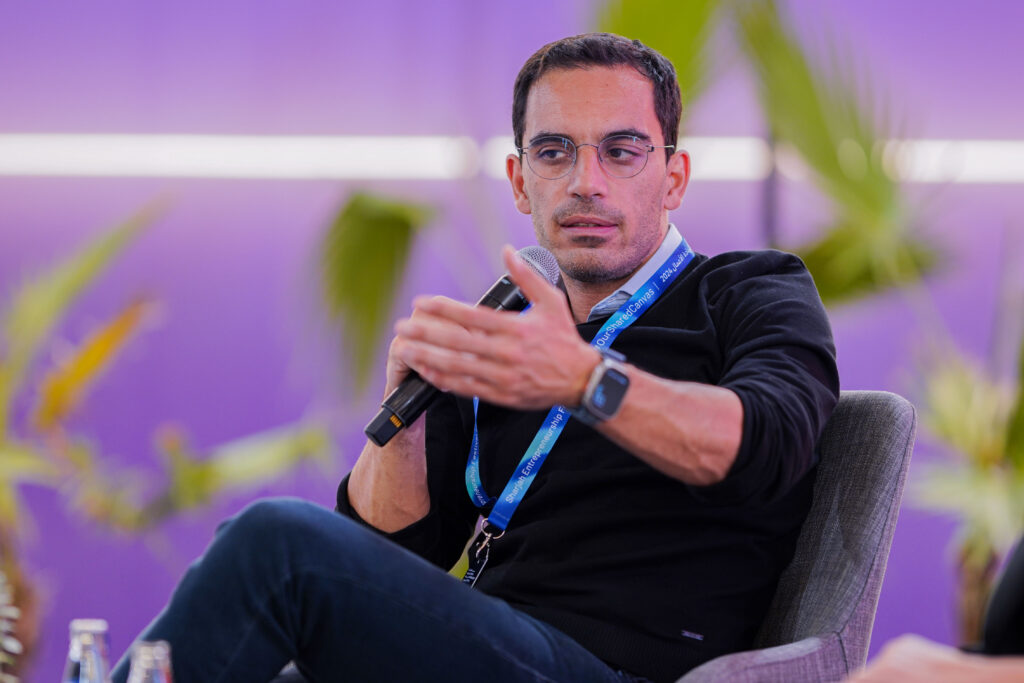
Data-Driven Storytelling
While storytelling remains an art, grounding narratives in data is what transforms a pitch into a compelling investment case. The importance of metrics — user growth, engagement rates, lifetime value, and burn rate — was highlighted, with a focus on how these metrics tell a story of past growth and future potential.
Founders are advised to present data transparently, acknowledging challenges and how they plan to address them, thereby building trust with potential investors.
“We can tell from the first moment we meet you, you're not speaking the language of that sector or industry you claim to be able to disrupt — in 30 seconds. We know right away. You're not saying the metrics that everybody in that industry speaks. You're not understanding the problems close enough.”
Sharif El Badawi
Flexibility and Resilience
“The idea you start with, the business you start with at the pre seed or very early stage, tends not to be what the business you end up with at the end. And what you're really betting on is the ability of the founder to kind of build and evolve and navigate that.”
Khaled Talhouni
Adaptability in strategy and resilience in execution are qualities that investors value highly, especially in the face of 2024’s dynamic market conditions.
“We are out of the frothy 2020-2021 days where all the VCs had FOMO and checks, and money was growing on trees, and every startup seemed to be able to fundraise. We are seeing high interest rates. Capital is expensive. There are governance issues that are coming to play. Valuations of startups are plummeting. We are in a bit of a VC winter that we don't know when it's going to end.”
Erika Welch
The panelists shared stories of startups that pivoted successfully in response to feedback or market changes, illustrating the importance of flexibility. Founders should be prepared to discuss past pivots or strategy adjustments and the rationale behind those decisions, showcasing their ability to navigate uncertainty.
“You should be in love with the problem because you can always pivot, you can always change. It’s the problem that I care about.” - Luma
Luma Fawaz
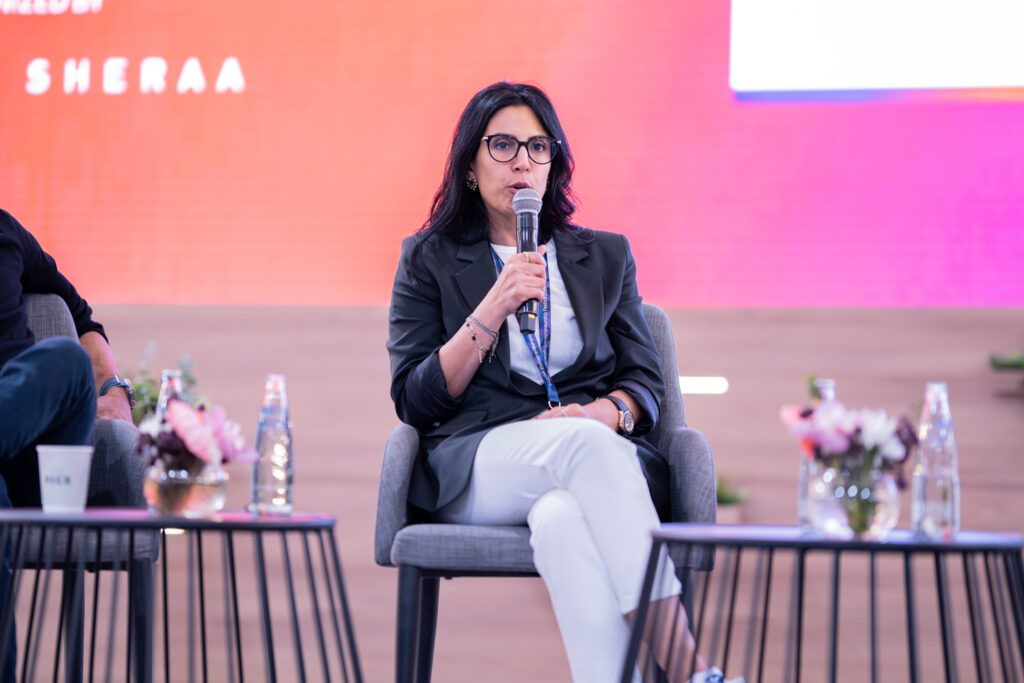
Investor Alignment
“Before you come and say, ‘I have a great idea, will you fund me?’ The expectation is that you're going to grow 20 to 30% per month, month over month. That's what we would look at.”
Sharif El Badawi
A significant part of the fundraising journey is identifying and engaging with investors who share a startup’s vision and values. The conversation stressed the importance of understanding an investor’s portfolio strategy, sector preferences, and investment horizon. Founders should tailor their pitches to highlight how their startup aligns with the investor’s goals, potentially leveraging case studies or analogies with successful portfolio companies.
“If you are asking for VC funding, you're also committing to a higher level of governance, reporting. You're actually saying, ‘I'm going to do a lot more work to run my business in a certain way in order to be responsible to my investors.’”
Erika Welch
Crafting the Perfect Pitch
The art of the pitch evolves continually, and in 2024, it demands a balance of passion, precision, and pragmatism. Founders must hone their ability to succinctly articulate their vision, the problem they’re solving, their solution’s unique value proposition, and the market opportunity.
“I love the analogy of treating fundraising like a sales process. If anybody has ever done sales in their life — to do sales well, you prospect, you prioritize your target list, you segment them perhaps. You understand each of them and their motivations and who the buyer is and what do they need, and you speak in their language. And then you go after it and you start to pitch. Fundraising is very similar.”
Sharif El Badawi
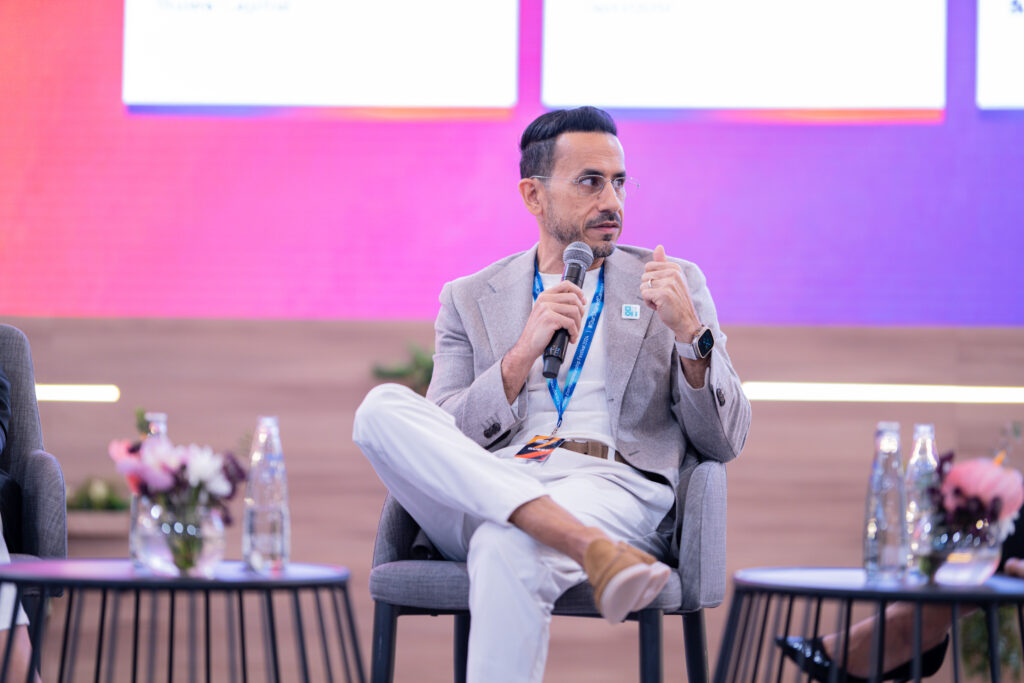
Engaging storytelling that weaves together the startup’s journey, team dynamics, and customer testimonials can make a pitch memorable. Additionally, addressing potential risks and mitigation strategies upfront can demonstrate strategic foresight and maturity.
“I meet a lot of founders who are raising money for the first time, and I think that there needs to be this sort of mental switch when you take on third party capital, when you take on money from somebody else. You're still the driving force of the company, but the minute you bring in outside capital, it's not your company alone. I think some founders struggle with that concept.”
Khaled Talhouni
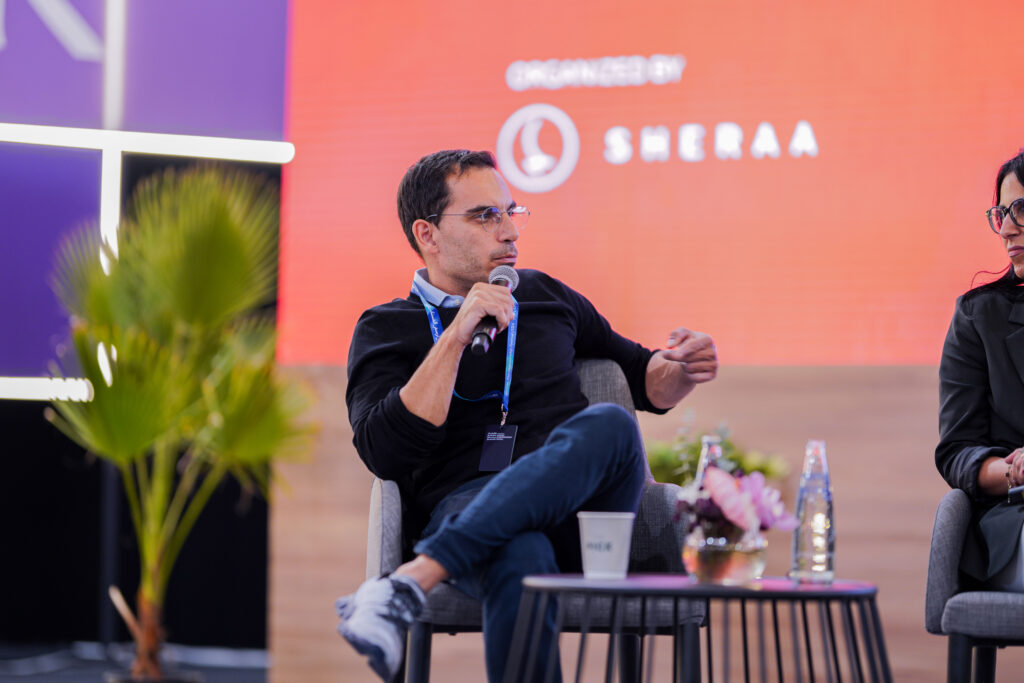
Cultural Fit and Beyond
The chemistry between founders and investors extends beyond the boardroom — it’s about shared beliefs, ethics, and visions for the future. The panelists shared anecdotes highlighting how cultural fit and shared values have underpinned some of the most successful founder-investor partnerships.
Founders are encouraged to seek out investors who are not just financial backers but true partners in their entrepreneurial journey.
“This is what smart money is, right? Strategic advisors that are not just giving you $50,000 or $100,000 but they are actually giving you access and building on your business.”
Erika Welch
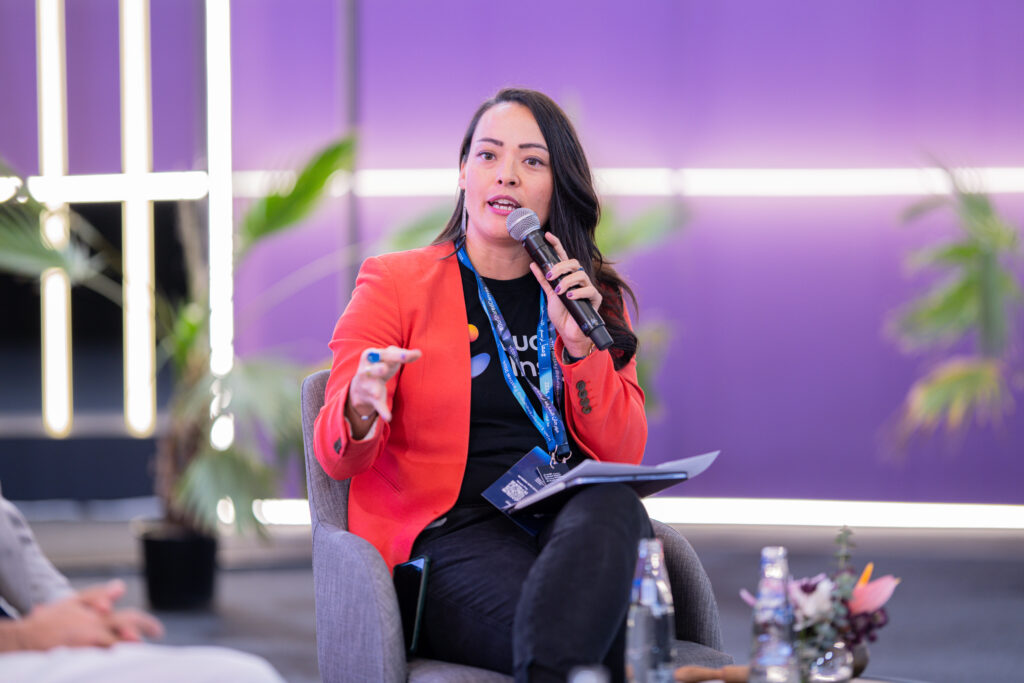
Conclusion
The insights from the “Hacking the Fundraising Journey” panel at the Sharjah Entrepreneurship Festival offer a roadmap for founders navigating the fundraising landscape in 2024. By understanding the venture ecosystem, building early relationships, articulating their value proposition with clarity, and aligning with the right investors, founders can position themselves for success in the increasingly competitive and complex world of venture capital.
“I think the worst of it is now behind us. I think this quarter we saw a frenzy of activity in the first few weeks of January. This was attested by many of the other VCs as well. We saw two mega rounds last quarter and we only expect Q2, Q3, Q4, this year to be up, up, up in terms of deployment.”
Sharif El Badawi
This extended guidance not only equips founders with the knowledge to make informed decisions but also prepares them for the evolving dynamics of investor engagement. Through proactive relationship building, strategic alignment, and a clear articulation of their value proposition, entrepreneurs can enhance their attractiveness to potential investors. In doing so, they contribute to a vibrant, innovative startup ecosystem that thrives on mutual respect, shared vision, and collaborative success.
The path to successful fundraising is multifaceted, requiring meticulous preparation, strategic positioning, and a deep understanding of the venture capital landscape. By synthesizing the wisdom shared by the panelists, we hope that this blog served as a comprehensive manual for founders on their journey to secure venture capital in 2024.
Founders are encouraged to approach fundraising with a mindset of partnership, viewing investors not merely as financial backers but as strategic allies who can provide invaluable support beyond capital.
If you are a founder who is passionate about building innovative solutions in the Future of Finance or Future Economies industries and meet our investment thesis, we invite you to apply for consideration for direct investment. You can also learn more about our Direct Investments deal lifecycle process here.

